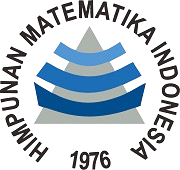E-Module for Problem-Based Learning Integrating Batak Toba Culture (PBL BTC) to Improve Problem-Solving Ability
DOI:
https://doi.org/10.30736/voj.v6i2.1038Keywords:
E-module Development, ADDIE Model, Problem-Based Learning, Batak Toba Culture, Problem-Solving AbilityAbstract
This research aims to analyze: 1) the validity, practicality and effectiveness of the PBL e-module based on Batak Toba Culture (PBL BTC) which was developed to increase students' problem-solving abilities at SMP Negeri 1 Simanindo; 2) increasing students' problem-solving abilities through the developed e-module. This research is using the ADDIE. From the tested of class IX 2 was obtained: 1) the PBL BTC e-module have the criteria of being valid, effective, and practical; 2) Increased problem-solving abilities using the PBL BTC e-module as seen from the N-gain value is 0.506, it is in the "medium" category. This research recommendations might be made the E-Module with mathematical problem-solving tasks on the topic of congruency should be continued for future effectiveness evaluations.
Downloads
References
Aulia, E. T., & Prahmana, R. C. I. (2022). Developing interactive e-module based on realistic mathematics education approach and mathematical literacy ability. Jurnal Elemen, 8(1), 231–249. https://doi.org/10.29408/jel.v8i1.4569
Azid, N., Ali, R. M., El Khuluqo, I., Purwanto, S. E., & Susanti, E. N. (2022). Higher order thinking skills, school-based assessment and students’ mathematics achievement: Understanding teachers’ thoughts. International Journal of Evaluation and Research in Education, 11(1), 290–302. https://doi.org/10.11591/ijere.v11i1.22030
Fitriani, F., Hayati, R., Sugeng, S., Srimuliati, S., & Herman, T. (2022). Students’ Ability To Solve Mathematical Problems Through Polya Steps. Journal of Engineering Science and Technology Special Issue on ICMScE2022, 25–32.
Latif, N. S., & Talib, A. (2021). Development of Ethnomathematics E-Modules Based on Local Wisdom to Improve Students’ Cultural and Civic Literacy. http://bookcreator.com,
Murtiyasa, B., & Wulandari, S. (2022). Problem Solving Ability According to Polya on System of Linear Equations in Two Variables Based on Student Learning Styles. Jurnal Didaktik Matematika, 9(2), 261–279. https://doi.org/10.24815/jdm.v9i2.26328
Nurfadilah, Z., Hamidah, D., & Wulan, E. R. (2023). Pengembangan E-Modul Matematika Berbasis Matematika Realistik Bernilai Budaya Kediri pada Materi Perbandingan. In Academic Journal of Math (Vol. 05, Issue 01). http://journal.iaincurup.ac.id/index.php/arithmetic/index
PISA 2022 Results (Volume I). (2023). OECD. https://doi.org/10.1787/53f23881-en
Prahmana, R. C. I., Yunianto, W., Rosa, M., & Orey, D. C. (2021). Ethnomathematics: Pranatamangsa system and the birth-death ceremonial in yogyakarta. Journal on Mathematics Education, 12(1), 93–112. https://doi.org/10.22342/JME.12.1.11745.93-112
Putri, L. S., Setiani, Y., & Santosa, C. A. H. F. (2023). E-Modul Matematika Berbasis Problem Based Learning Bermuatan Pengetahuan Budaya Lokal untuk Meningkatkan Kemampuan Pemecahan Masalah. Jurnal Educatio FKIP UNMA, 9(2), 880–890. https://doi.org/10.31949/educatio.v9i2.5002
Rézio, S., Andrade, M. P., & Teodoro, M. F. (2022). Problem-Based Learning and Applied Mathematics. Mathematics, 10(16). https://doi.org/10.3390/math10162862
Sagala, P. N., & Widyastuti, E. (2021). Development of Junior High School Mathematics E-Modules Based on Project Based Learning Integrated by Merdeka Belajar.
Saragih, S., & Habeahan, W. L. (2014). Journal of Education and Practice www.iiste.org ISSN. In Online) (Vol. 5, Issue 35). https://www.researchgate.net/publication/314116485
Saragih, S., Napitupulu, E. E., & Fauzi, A. (2017). Developing Learning Model Based on Local Culture and Instrument for Mathematical Higher Order Thinking Ability. International Education Studies, 10(6), 114. https://doi.org/10.5539/ies.v10n6p114
Seruni, R., Munawaroh, S., Kurniadewi, F., & Nurjayadi, M. (2020). Implementation of e-module flip PDF professional to improve students’ critical thinking skills through problem based learning. Journal of Physics: Conference Series, 1521 (4). https://doi.org/10.1088/1742-6596/1521/4/042085
Simangunsong, I. P., Simangunsong, I. T. (2022). Penerapan Model Pembelajaran Problem Based Learning untuk Meningkatkan Kemampuan Pemecahan Masalah Matematis Siswa. 4(2), 840–851.
Simangunsong, I. T., Panjaitan, J., & Panggabean, D. D. (2023). Problem Based Learning On Students’ Concept Mastery And Problem Solving Skills. Natural Science: Jurnal Penelitian Bidang IPA Dan Pendidikan IPA, 9(2), 156–166.
Sinaga, B. (2014). Inovasi Model Pembelajaran Berbasis Budaya Batak. Jurnal Generasi Kampus, 7(2), 187–208.
Tania, W. P., & Siregar, N. (2022). The Development of E-book Based on Realistic Mathematics Education (PMR) Approach to Improve Mathematical Communication Skills in Class VIII Junior High School Students. Journal of Medives : Journal of Mathematics Education IKIP Veteran Semarang, 6(1), 91. https://doi.org/10.31331/medivesveteran.v6i1.1910
Utami, R. E., Nugroho, A. A., Dwijayanti, I., & Sukarno, A. (2018). Pengembangan E-Modul Berbasis Etnomatematika Untuk Meningkatkan Kemampuan Pemecahan Masalah. Jurnal Nasional Pendidikan Matematika), 2(2), 268–283.
Wahyu Sintiya, M., Puji Astuti, E., & Yudi Purwoko, R. (2021). Pengembangan E-modul Berbasis Etnomatematika Motif Batik Adi Purwo untuk. In Siswa SMP JPMR (Vol. 06, Issue 01). https://ejournal.unib.ac.id/index.php/jpmr
Wijaya, T. T., Zhou, Y., Houghton, T., Weinhandl, R., Lavicza, Z., & Yusop, F. D. (2022). Factors Affecting the Use of Digital Mathematics Textbooks in Indonesia. Mathematics, 10(11). https://doi.org/10.3390/math10111808
Yeni D. Fonataba, Ronaldo Kho, Bettisari Napitupulu, Irfan Wahyudi, & Happy Lumbantobing. (2023). Ethnomathematics at TIFA Yapen as A Source for Learning Mathematics. Hipotenusa: Journal of Mathematical Society, 5(2), 132–146. https://doi.org/10.18326/hipotenusa.v5i2.536
Yunianta, T. N. H., Herman, T., Wizhar, B. Al, & Kurniawan, M. A. F. (2023). Development of Mathematics E-Module Using Kodular and Flipbook for Junior High School Students: Differences. Jurnal Didaktik Matematika, 10(1), 1–16. https://doi.org/10.24815/jdm.v10i1.29730
Downloads
Published
How to Cite
Issue
Section
License
Copyright (c) 2024 ita pratiwi simangunsong, Elvis Napitupulu, Asrin Lubis, ika trisni simangunsong

This work is licensed under a Creative Commons Attribution-NonCommercial-ShareAlike 4.0 International License.
Copyright:
Authors who publish their manuscripts in this Journal agree to the following conditions:
- Copyright of any article on Vygotsky: Jurnal Pendidikan Matematika dan Matematika is held solely by the author under the Creative Commons Attribution 4.0 International license (CC BY NC SA).
- Authors can submit papers separately, arrange non-exclusive distribution of manuscripts that have been published in this journal into other versions (e.g. sending to the author's institutional repository, publication in a book, etc.) by acknowledging that the manuscript has been published for the first time in Vygotsky: Jurnal Pendidikan Matematika dan Matematika.
License:
Vygotsky: Jurnal Pendidikan Matematika dan Matematika is published under the terms of the Creative Commons Attribution 4.0 International License (CC BY NC SA). This license permits anyone to copy and redistribute this material in any form or format, compile, modify and develop this material for any purpose as long as it is not for commercial purposes. Additionally, anyone must provide credit and distribute contributions under the license of the creator of the original work.







